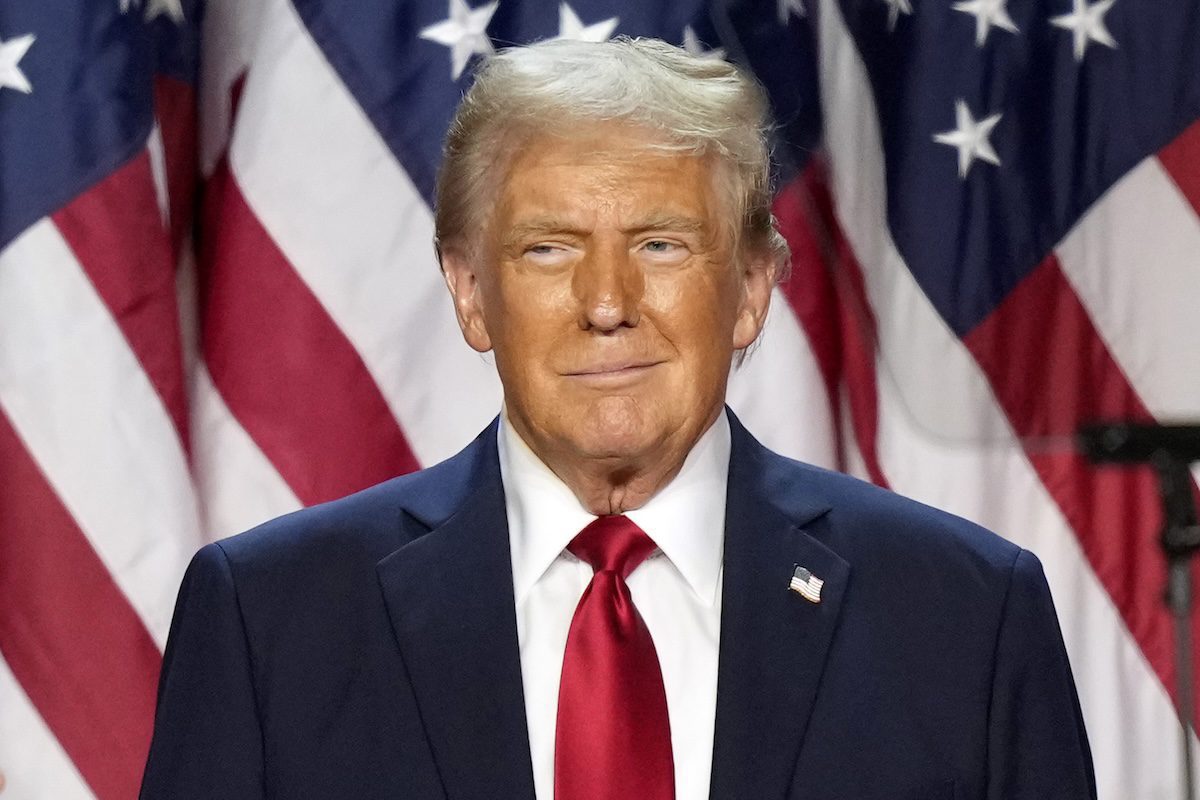
(Photo by Andrew Harnik/Getty Images News/Getty Images)
The Democratic presidential nominee on Tuesday announced new plans to expand vocational programs, eliminate college degree requirements, and create new loan programs for Latinos looking to start a business.
Democratic presidential nominee Kamala Harris on Tuesday announced several new policies aimed at supporting Latino small businesses, workers, and veterans in the waning days of this year’s historically-tight presidential race.
In an interviewed scheduled to air on Telemundo later Tuesday, Harris is set to formally unveil new proposed expansions to federal programs that she said will help strengthen the middle class such as expanding apprenticeship and skilled trades training programs, eliminating college degree requirements on certain federal jobs, and expanding business loan opportunities for Latino entrepreneurs, among others, according to a release from her campaign.
“As President, Kamala Harris will genuinely invest in our future and ensure everyone has a fair shot at achieving their American Dream,” said California Democratic US Sen. Alex Padilla, a member of the Harris campaign’s national advisory board.
Harris’ campaign said in the release that efforts to double vocational programs and eliminate college degree requirements would benefit about 2 million workers of all races and ethnicities nationwide. A potential Harris administration would partner with businesses, trade unions, community colleges, and other Hispanic-serving community and religious organizations to deliver training opportunities that would lead to higher-paying jobs, she said.
Harris is also unveiling a new proposal that would allow registered apprentices and construction workers — an estimated 30% of whom are Latino — to be able to write off the expense of tools and equipment as tax deductions, which she said would reduce the barrier for young Latinos to get a start in the building trades.
Harris is also proposing eliminating a college degree requirement for up to 500,000 federal jobs, and would encourage the private sector to do the same. The release from her campaign further stated a potential Harris administration would partner with more than 1,000 high schools across the US to allow students to earn a head start on college or technical certifications while still in school.
RELATED: ‘I want you to be able to get ahead:’ Harris makes her case to Latino voters in Univision town hall
Latino voter advocacy groups based in Nevada largely cheered the announcement.
“As a community, it feels like our people are facing barriers like never before, including limited job opportunities, lack of access to capital to start or grow our businesses, and out of control corporate greed that drives up cost of living and utility bills,” Leo Murrieta, executive director of Make The Road Nevada, said in a statement. Make The Road Nevada is a nonprofit organization that advocates for immigrants.
“These barriers keep far too many of us from being able to build stable futures for ourselves and our families, Latine men know this struggle all too well,” Murrieta continued. “That’s why Vice President Harris’ “Opportunity Agenda” will offer the breathing room that Latine families desperately need in our pocketbooks. Removing the barriers and unnecessary obstacles that stand between Latine men and economic prosperity is absolutely the right thing to do. This agenda allows us the opportunity to secure our own futures and lay the foundation for our families to thrive like never before.”
Latino veterans would also uniquely benefit from a Harris presidency, according to her campaign. Harris said she also plans to expand workforce development opportunities for roughly 1.5 million Latino veterans and an additional 240,000 active duty service members by investing in programs that train and hire veterans.
The vice president is also reiterating existing plans to build 3 million new affordable homes by the end of 2028, as well as tax credits redeemable in the form of $25,000 in down payment assistance for first-time homebuyers. The Harris campaign notes that less than 50% of US Latinos own their home and is aiming to double the annual number of first-time Latino homebuyers by the end of what would be Harris’ first term.
Harris also also expected to tout that Latino small business ownership is up 40% and is growing at the fastest rate in 30 years over the last four years, but added that studies have shown that Latinos are more likely to be denied a large loan from banks.
But a Harris administration would establish new loan programs designed to provide up to one million new forgivable loans worth up to $20,000 for Latino entrepreneurs who are seeking to start a business, according to the announcement. Those loans, she said, would be through a new partnership with the US Small Business Administration and “mission-driven lenders and banks with a proven commitment to their communities,” according to a news release.
Democrats say Harris’ plan not only provides opportunities to expand the middle class, but is a sharp contrast to her Republican rival Donald Trump, who they argue has outlined virtually no policy in respect to uplifting working-class Americans, particularly Latinos.
“The choice in this election couldn’t be more clear: Kamala Harris will include the Latino community in the success and well-being of our country, while Donald Trump is shamelessly running to cut taxes for corporations, raise health care and grocery costs, and demonize our community,” Padilla continued.
Just 14 days remain until the Nov. 5 general election as of Tuesday, and surrogates for the Harris ticket have embarked on a weeklong Hispanic media blitz, underscoring the role swing state Latino voters can have in determining the outcome of this year’s election.
That includes Nevada, where Latinos comprise about 29% of the state’s population of 3.1 million. Recent polls have shown the race in Nevada between Harris and Trump a dead heat, and the two have stumped heavily throughout the Silver State in the runup to Election Day.
Early voting in Nevada remains active now through Nov. 1. Unregistered Nevadans who are otherwise eligible to vote have until Oct. 22 to register and still receive a mail-in ballot, but they may also visit a polling site or their local clerk’s office from now through Election Day to sign up.
Voters who have received a mail ballot may cast their vote by submitting it to a registered ballot drop-box or through the US Postal Service. Per state law, mail ballots must be postmarked by Nov. 5 to be counted.
Support Our Cause
Thank you for taking the time to read our work. Before you go, we hope you'll consider supporting our values-driven journalism, which has always strived to make clear what's really at stake for Nevadans and our future.
Since day one, our goal here at The Nevadan / El Nevadense has always been to empower people across the state with fact-based news and information. We believe that when people are armed with knowledge about what's happening in their local, state, and federal governments—including who is working on their behalf and who is actively trying to block efforts aimed at improving the daily lives of Nevada families—they will be inspired to become civically engaged.

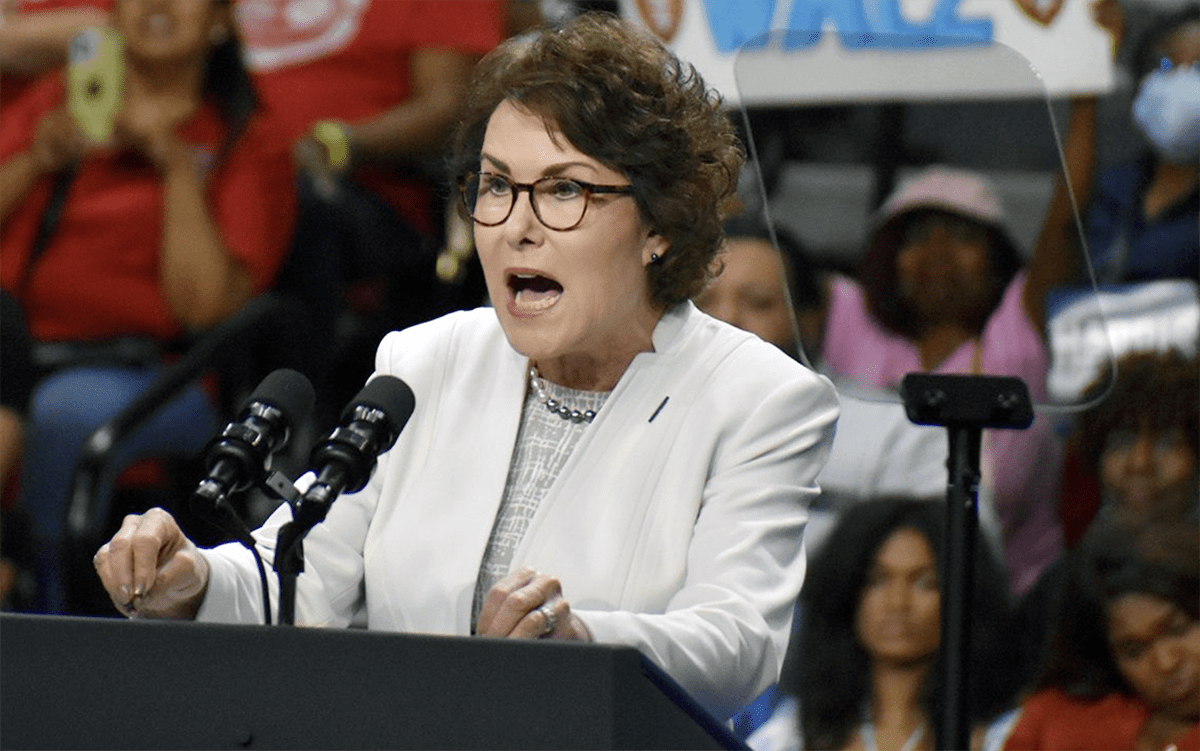
La senadora Jacky Rosen logra conservar su escaño en reñida contienda electoral
Tras los resultados más recientes tabulados el jueves por la mañana, varios medios dieron a conocer que la contienda entre la actual senadora...
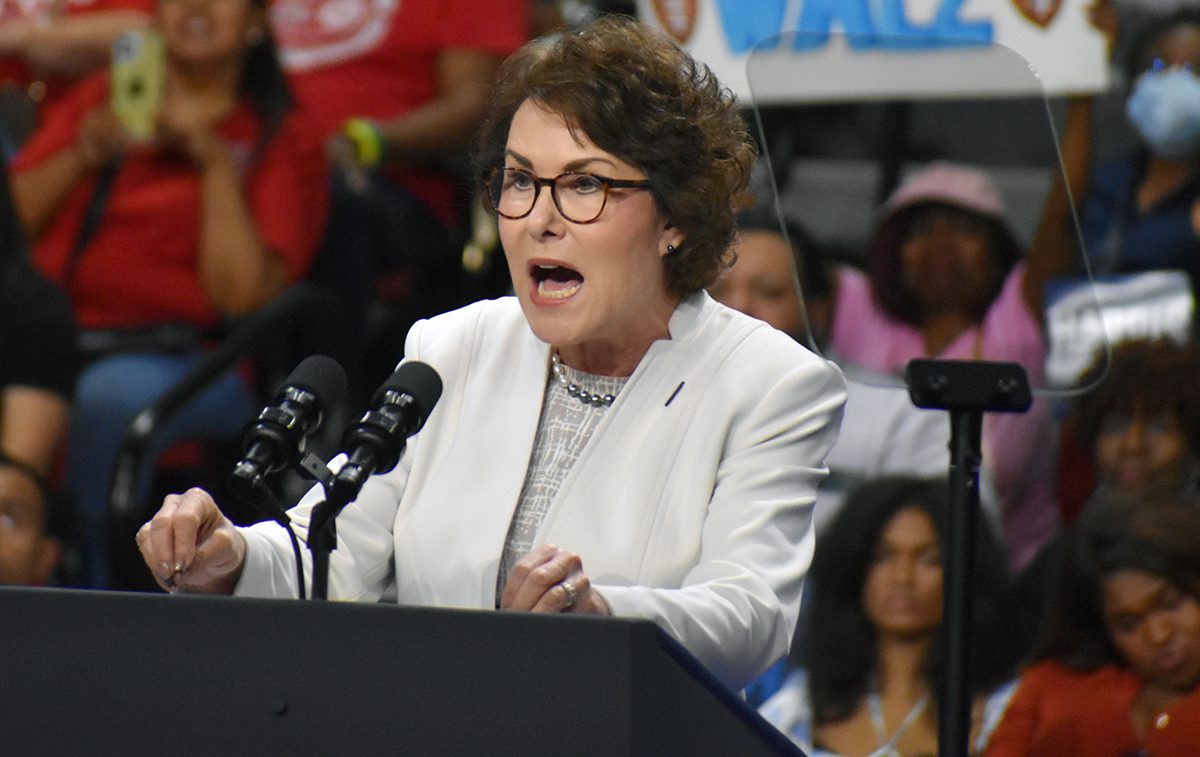
Race for Nevada US Senate seat called for Jacky Rosen by multiple outlets
Following the newest results tabulated Thursday morning, the race between Nevada Democratic incumbent US Sen. Jacky Rosen and Republican Sam Brown...
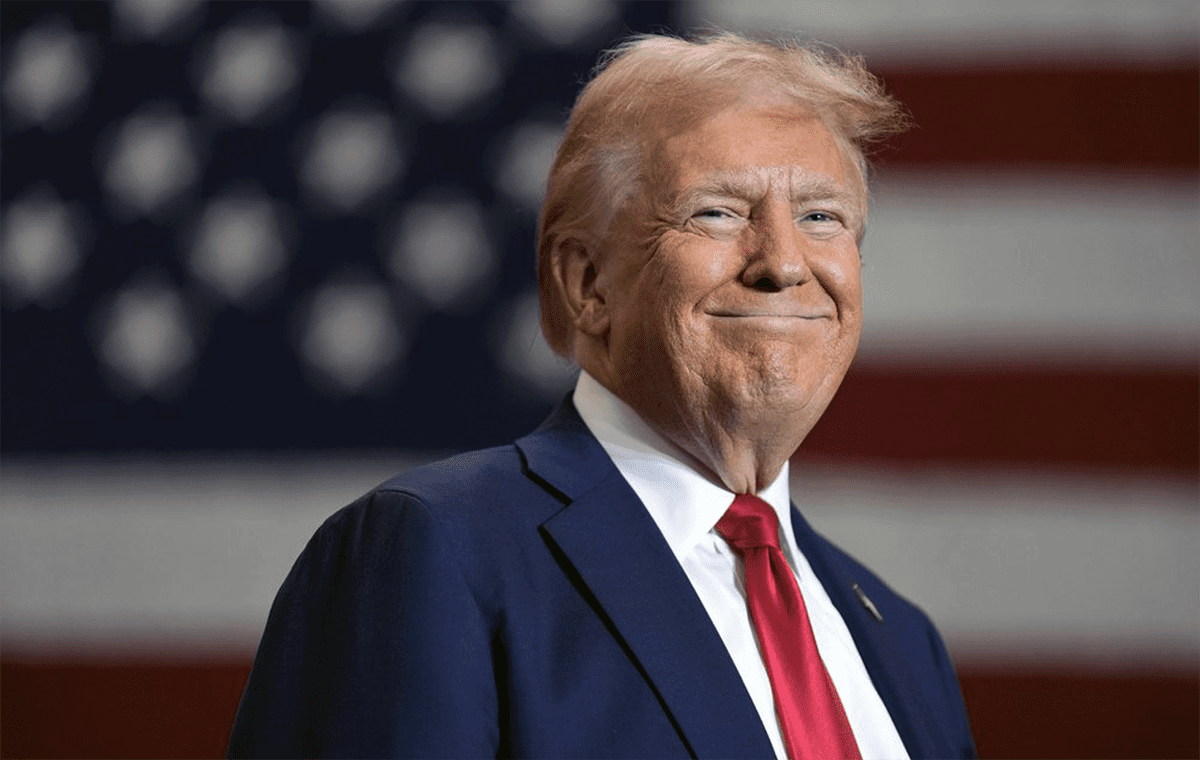
Un análisis de los resultados de las elecciones de 2024 en Nevada
Si bien Donald Trump ganó la presidencia y parece estar en camino de ganar en Nevada, su éxito no se traduce tanto para los republicanos que...
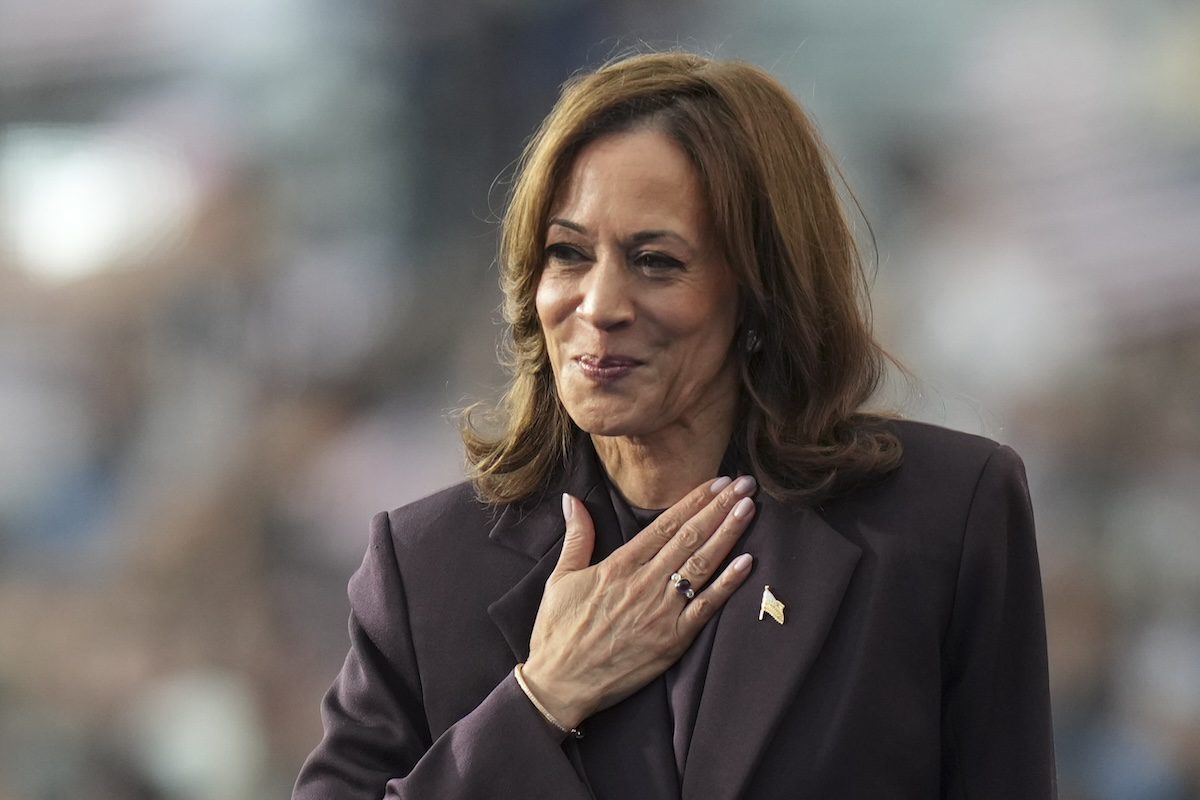
Harris says nation must accept election results while urging supporters to keep fighting
Harris delivered her remarks at Howard University, her alma mater and one of the country's most prominent historically Black schools, in the same...

Election fatigue? Here’s how to recharge your mental health
We all have our personal struggles in life, from work stress to relationship drama, but something about the 2024 election season simply felt...
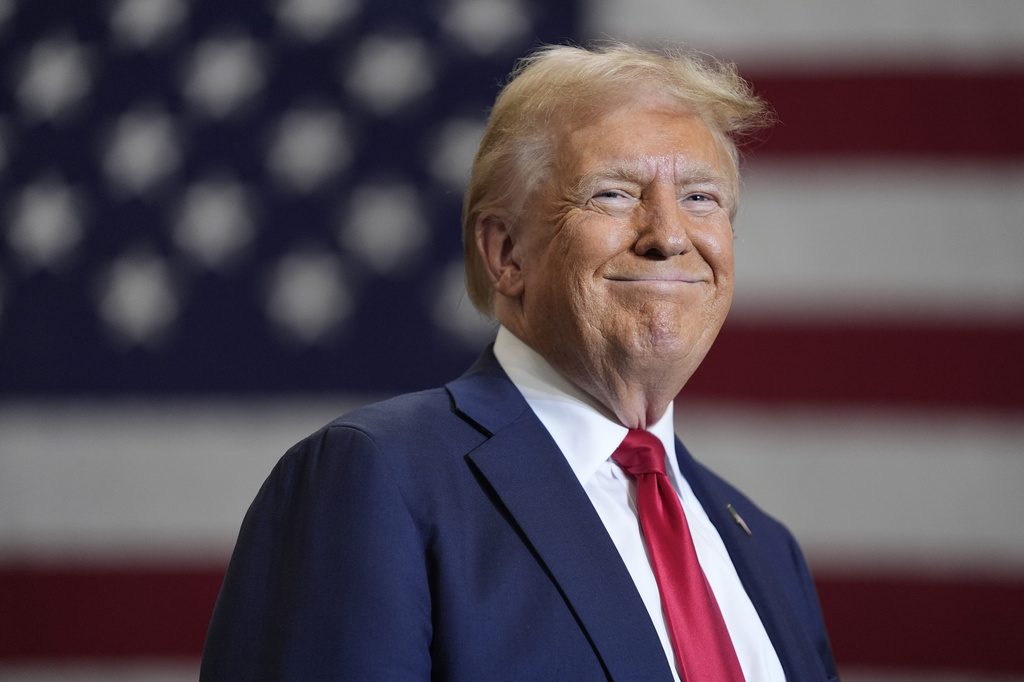
Breaking down the 2024 election results in Nevada
While Donald Trump won the presidency and appears to be on track to winning Nevada, his success isn’t translating as much for down-ballot...




